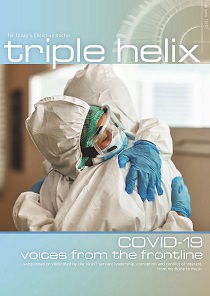Should people who have positive antibody tests for SARS-CoV-2 be issued with immunity certificates? With pressure on the international tourist industry, global sporting events and business travel, there is a growing economic case for using such certificates, or 'immunity passports' to bypass quarantine regulations between and within countries, returning a semblance of normality to national and international travel and business. These certificates would allow these privileges or exemptions from restrictive public health regulations because such individuals are likely to be immune to COVID-19. On the face of it, this could be an attractive idea and a way out of lockdowns within and between nations.
However, there are strong reasons for concern. [1] Four months ago, the WHO produced a scientific briefing, [2] highlighting the limits of current knowledge and the technical limitations around issuing such' certificates of immunity'. In it, they state that 'The use of such certificates may increase the risks of continued transmission'. A report on the BBC World Service quoted Robert West, Professor of health psychology and behavioural science at University College, London as saying 'certification could create a multi-tier society, and increase levels of discrimination and inequity' allowing a supposedly 'COVID-immune elite' to develop. [3] Dr Briand and colleagues from the Global Infectious Hazard Preparedness Unit at the WHO presented a very comprehensive and thoughtful seminar on the issue in May 2020. [4]
There are several problems with making such 'immunity certificates' or 'passports' workable. Firstly, the scientific validity of any immunity certificate would depend on adequate evidence that the serology test was of sufficient sensitivity and specificity. It would also depend on whether the presence of antibodies reliably indicated protective immunity or reduced infectivity. Finally, it assumes that the duration of protective immunity is known and specified. At present, none of these details is fully understood.
Secondly, the official validity and applicability of such a certificate would depend on a common, international standard for laboratory accreditation and the administration system which verified the person's identity, as well as the creation or appointment of a certifying body capable of monitoring the scheme. Finally, even if it were possible to fulfil all such conditions, there would still be the problem of justifying the expense of just carrying out the millions of tests that would be required, let alone of setting up and policing the global standards. Furthermore, it is conceivable that such 'immunity passports' would create a perverse incentive to expose oneself to infection, undermining public health efforts Most worryingly, it would exacerbate social inequalities since both access to, and the consequences of, testing may be manipulated to the benefit of the rich and powerful and the detriment of marginalised groups. [5]
At present, the promotion of 'coronavirus immunity certificates' appears to be incompatible with Christian and professional ethics.































